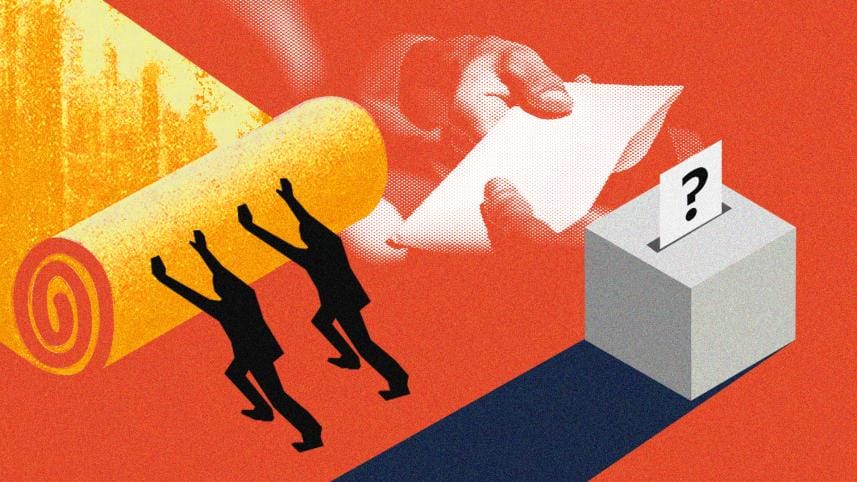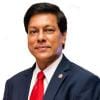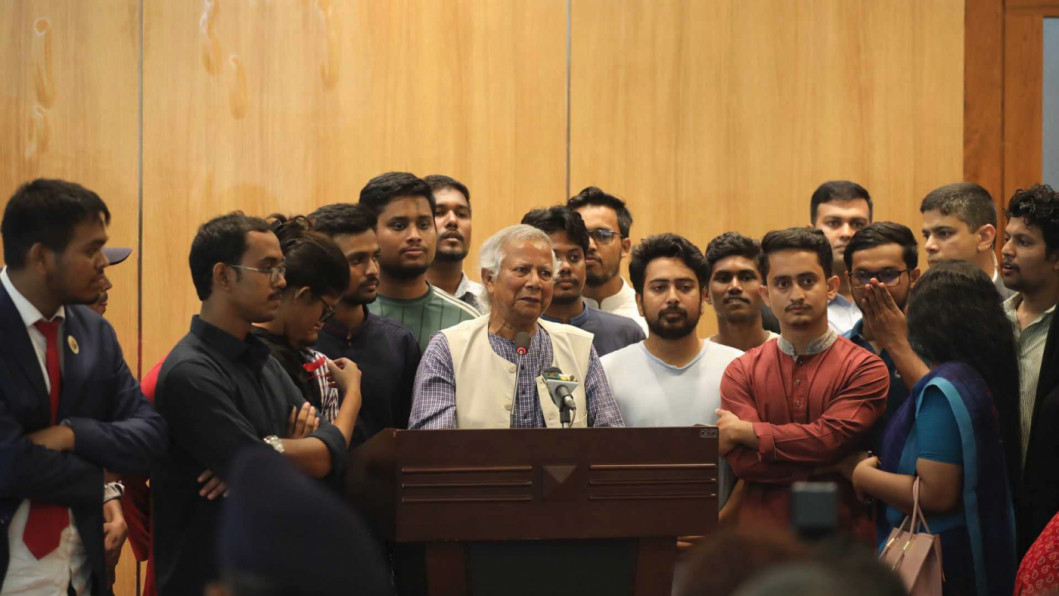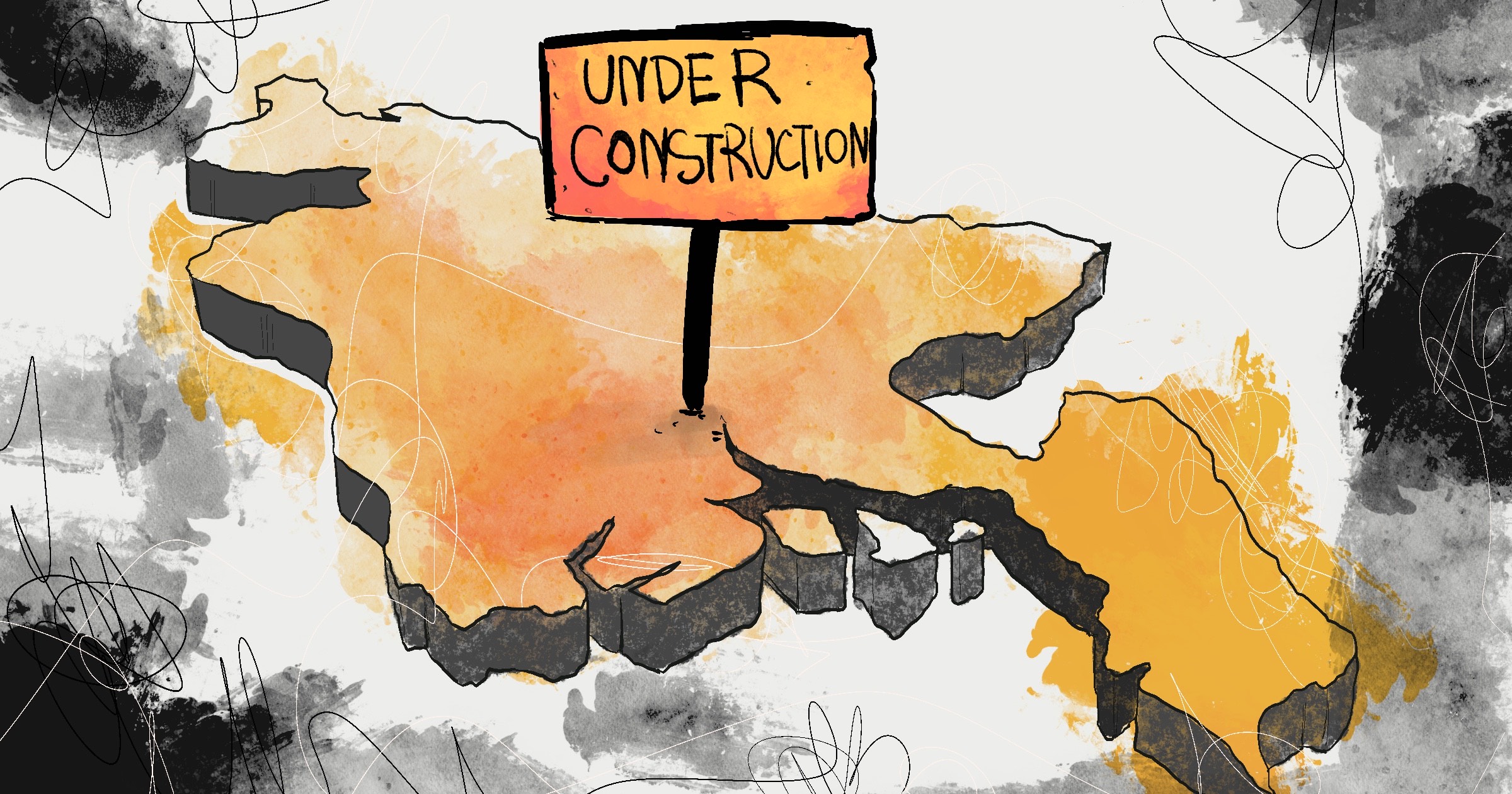Reforms require unity among our politicians

In a recent interview with Prothom Alo, Chief Adviser Professor Muhammad Yunus urged the nation, "Unite for reforms. We must not hold the election without carrying out reforms. That is my appeal to everyone. Do not lose this opportunity." His appeal captures a sentiment shared by millions: emphasising that reforms must precede elections if democracy is to thrive in Bangladesh. For too long, elections have been treated as rituals to renew power, not as opportunities for meaningful change. Since independence, no government in Bangladesh has fully lived up to the expectations of its people. Despite repeated promises, successive administrations have failed to deliver on their commitments. This persistent failure has fuelled widespread disillusionment, with many citizens now seeing politics as a self-serving enterprise rather than a means of public service. The growing mistrust reflects a deeper crisis within the political system, raising a crucial question: what do the people of Bangladesh truly expect from their leaders?
The people of Bangladesh expect politicians to be honest, accountable, and dedicated to public service. They want leaders to create a safe and fair environment where they can live and work without fear of bribery or extortion. People also expect politicians to focus on important matters like economic growth, healthcare, and education. Sadly, most politicians seem more interested in criticising opponents, using harsh words and weak arguments. People also hope for fair prices of essential goods and reliable access to basic services such as water, electricity, and gas, so people from all income levels can live with dignity. They want freedom of speech to be protected, allowing them to speak out without fear of retaliation. Citizens are tired of promises made during election campaigns that are never kept—they expect politicians to deliver on their commitments through fair and responsible leadership that upholds the law and ensures institutions serve everyone equally. Unfortunately, there is a wide gap between these expectations and the political reality in Bangladesh.
For the past three decades, Bangladesh's political landscape has been dominated by two major players: the Awami League (AL) and the Bangladesh Nationalist Party (BNP). Despite their longstanding dominance, these parties have failed to reach a consensus on any matter of national, political, social or economic importance that could genuinely benefit the country. Their ideological divisions are stark, but ironically, their main goal remains the same—winning elections and holding on to power—at any cost. Both parties have followed the same playbook when they were in opposition: boycotting parliament, inciting violent protests, and damaging public and private property, all in the name of democratic rights. They claim to uphold democracy, but their actions suggest otherwise. Their internal structures remain highly autocratic, and most decisions are made based on the personal preferences of the party president/chairperson. There is little room for new ideas or input from others, which stifles political progress and power stays within a small circle of individuals.
Politics in Bangladesh, once considered a noble calling, has now become a fast track to wealth and power. For some, it serves as a family legacy; for others, it is a shortcut to personal enrichment. While corruption has always existed in politics, the current scale and openness of it are alarming. Many politicians control local territories, rig public contracts, and engage in various illegal activities, including land grabbing, sand mining, extortion from street vendors and the transport sector, and running drugs and gambling operations. A Transparency International Bangladesh (TIB) report reveals that corruption in the Roads and Highways Department alone has cost the nation nearly Tk 50,835 crore over the past 15 years. Another TIB report estimates that Tk 2,000 crore is extorted every year by transport owners' and workers' associations. This money is shared among influential figures, including politicians, police, bureaucrats, contractors, and engineers.
Political leaders have built a patronage system that extends into nearly every sector, including student groups, labour unions, lawyers, teachers, doctors, and business leaders. These groups are often offered financial incentives, business opportunities, or influential positions in exchange for suppressing dissent from the public or opposition parties. This system has enabled successive regimes to cling to power through a mix of violence and rewards, alienating ordinary citizens and causing unnecessary suffering. What is particularly concerning is how politicians exploit the poor and manipulate the youth for their political interests. It has become customary for political parties to use young people as picketers during protests. Some of these picketers are street children, while others are students. Under the guise of political movements, they engage in street violence, often fighting fiercely on behalf of their political mentors and, in the process, become victims of violence themselves. These young people are treated as expendable foot soldiers by all political parties.
There is no doubt that Bangladesh's political standards are now at their lowest point, with integrity in governance and honesty in leadership almost non-existent. Bangladesh's politics had a glorious past, marked by a proud history of struggle and supreme sacrifices for national causes, including the Language Movement of 1952, the Mass Uprising of 1969, and the Liberation War of 1971. In those days, the most well-educated, honest, and socially conscious individuals with high moral values engaged in politics. Unfortunately, over time, things have deteriorated. While even a clerical job now requires a college degree, there is no minimum educational qualification requirement to become an MP—an important position with responsibility for making laws.
Professor Yunus rightly argued that holding elections without meaningful reforms would be a grave mistake. Rebuilding political institutions and fostering a healthier political culture are monumental tasks—especially for an interim government with limited time. Yet, key reforms are essential not only to ensure free and fair elections but also to curb the misuse of state resources and dismantle the cycles of patronage and political violence that have plagued the nation for decades. People are exhausted by these "self-serving netas;" they yearn for leaders capable of rooting out corruption, challenging harmful traditions, and, most importantly, fostering unity for the betterment of Bangladesh. However, these aspirations demand more than empty promises—they require genuine action. Unless politicians address these critical issues, the gap between public expectations and political realities will continue to widen. The question now is whether political leaders will rise to meet the people's expectations—or allow yet another opportunity for meaningful change to slip away.
Abu Afsarul Haider is an entrepreneur. He can be reached at afsarulhaider@gmail.com.
Views expressed in this article are the author's own.
Follow The Daily Star Opinion on Facebook for the latest opinions, commentaries and analyses by experts and professionals. To contribute your article or letter to The Daily Star Opinion, see our guidelines for submission.




 For all latest news, follow The Daily Star's Google News channel.
For all latest news, follow The Daily Star's Google News channel. 

Comments